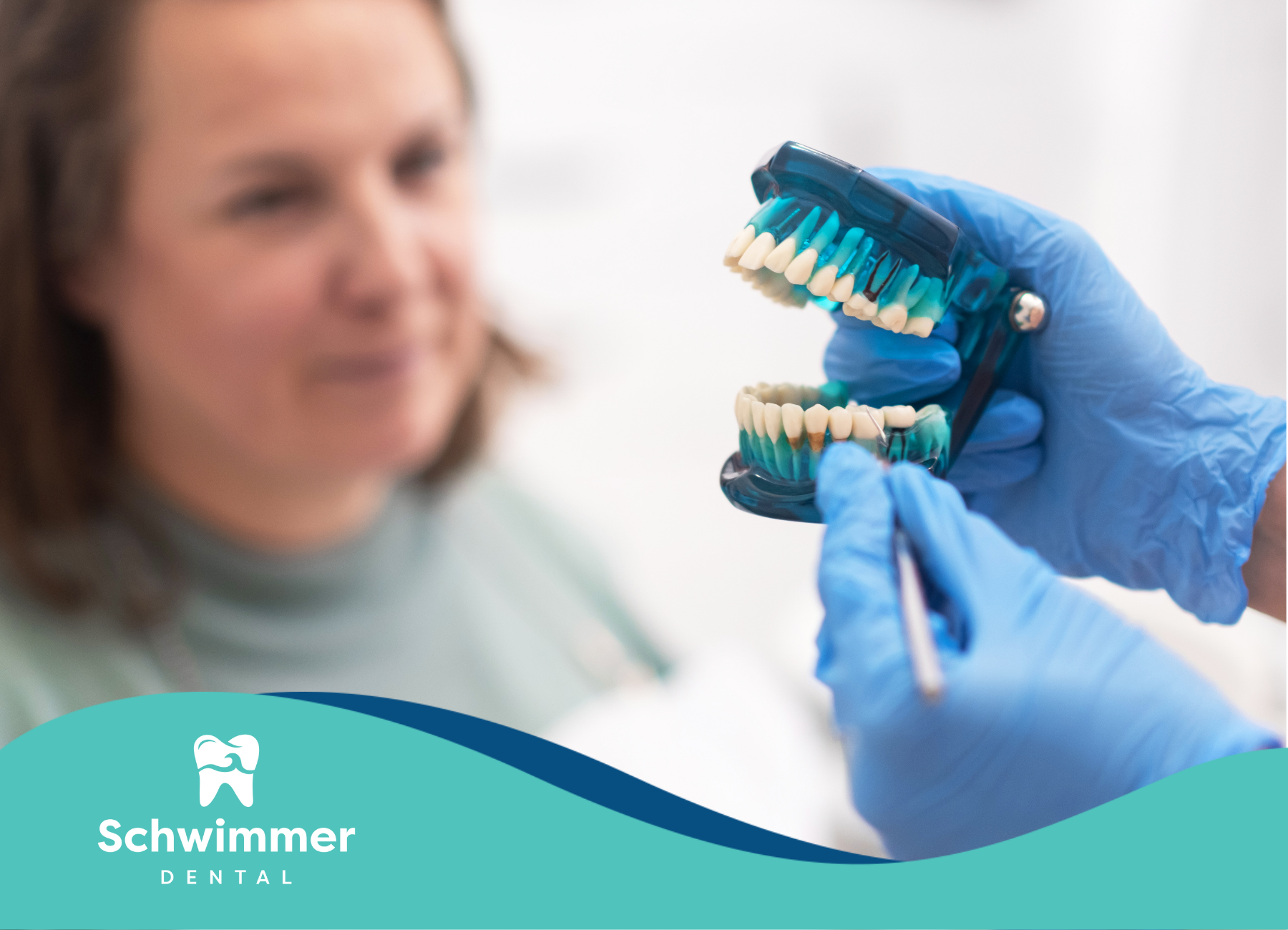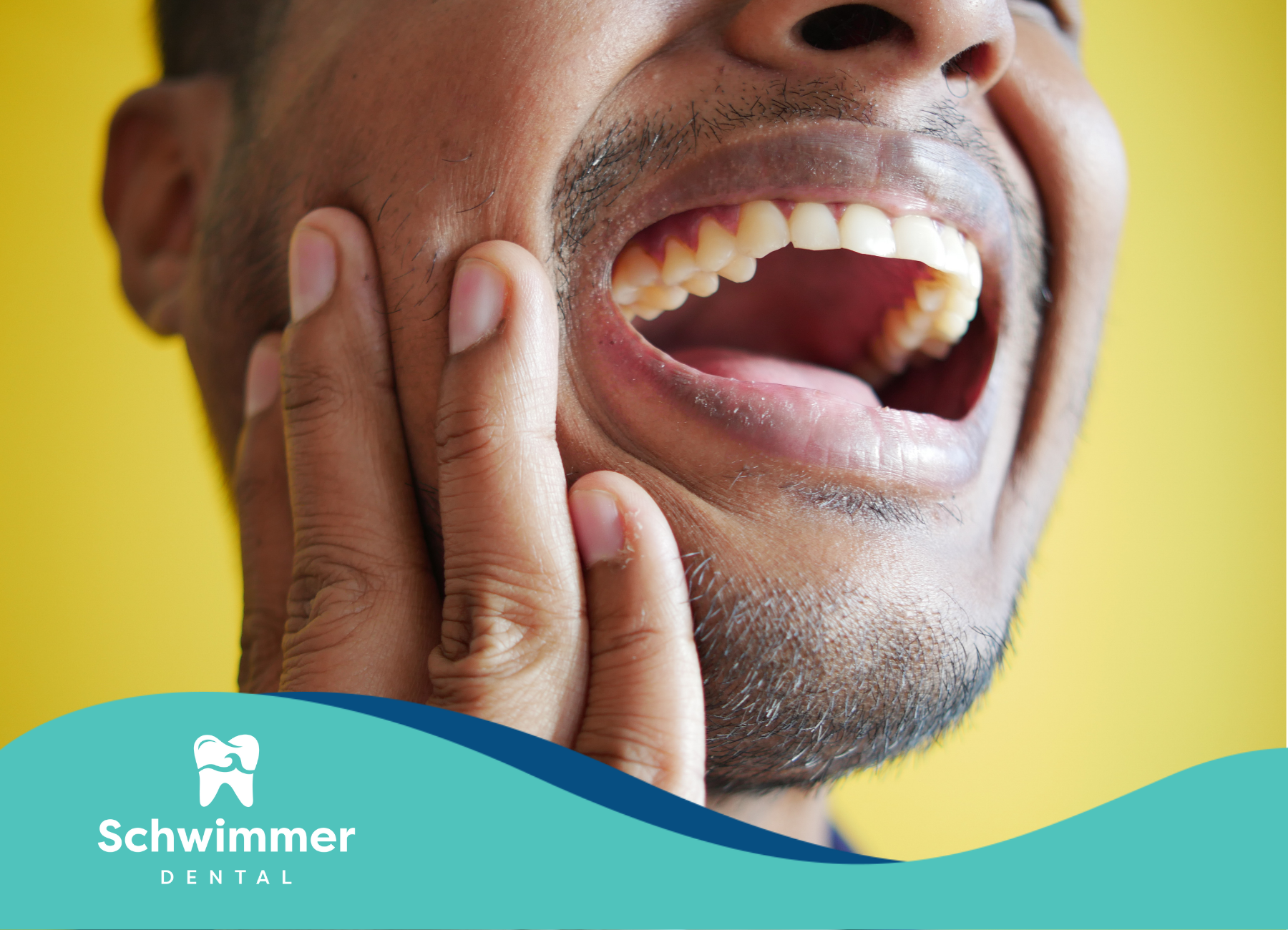Have an appointment? Complete the Intake Form
Essential Guide: How to Clean Your Baby's Teeth
A baby's first baby tooth is a special event that starts a long journey of good oral health. It may seem too soon to think about dental care, but starting healthy habits early is really important. This will help protect your baby's beautiful teeth. From their first few months to their first trip to the dentist, this guide has all the information you need to keep your baby's teeth healthy and bright.
Getting Started: Cleaning Baby's Gums and Teeth
Did you know that your baby's oral hygiene routine starts before their first tooth comes in? It's true! Cleaning your baby's gums gently from the beginning helps build a base for healthy teeth and gums. This information is also available in Arabic.
You should use a soft, damp cloth or gauze to wipe your baby's gums twice a day. This easy step keeps your baby’s gums and mouth clean. It also helps them get used to having their mouth cleaned, making it easier to brush their teeth later on.
The Importance of Starting Early
Taking care of your baby's teeth is very important for their health. Baby teeth are not just a stage before adult teeth; they help with key parts of growing up.
First, baby teeth help with chewing and speaking clearly. If we do not care for them, it can lead to tooth decay that can harm permanent teeth. This decay can hurt and make it hard for them to eat. This can hurt their growth and how they get nutrients.
Second, starting good oral hygiene habits young helps them keep these habits as they grow older. If we teach them to brush their teeth regularly, they will learn to take care of their health. This can help them have good oral health for life.
Step-by-Step Guide for Cleaning Gums Before Teeth Appear
Even before your baby's tiny teeth come in, it is important to keep their gums clean. This helps get rid of milk residue and bacteria, making it better for their new teeth.
Follow these easy steps to clean your baby's gums well:
- Wash your hands thoroughly: Make sure your hands are clean first to avoid giving germs to your baby.
- Prepare a soft, clean washcloth: Get a soft washcloth or a piece of gauze and dampen it with warm water.
- Wrap the washcloth around your finger: Put the damp cloth around your index finger. Then, gently massage your baby's gums in a circular way. Be sure to clean the whole gum line.
- Be gentle: Use light pressure. Do not rub too hard because your baby's gums are soft.
Adding this simple task to your baby's daily routine will help them have a healthy smile. You can also give your baby a clean teething ring to chew on. This can help soothe their gums.
Selecting the Right Tools for Brushing Baby's Teeth
Choosing the right tools for your baby's oral hygiene can feel hard, but it doesn’t have to be. The key tools for taking care of your little one's teeth are simple and easy to find.
Pick a soft-bristled baby toothbrush made just for their small mouths. These toothbrushes have small heads and bigger handles. This helps you reach all the spots in their mouth with ease.
Choosing the Best Baby Toothbrush
Navigating the world of toothbrushes for your baby can be tough. The most important things are comfort and safety. Look for a toothbrush that has a small head. Make sure the handle fits well in your hand and easily fits in your baby's mouth.
Soft bristles are very important. They can clean your baby's teeth and gums without causing any irritation. It's best to choose a brush that says 'baby toothbrush' or 'infant toothbrush.' These brushes are made just for delicate mouths.
Don't forget to replace the toothbrush every three to four months. If the bristles look worn or frayed, change it sooner. A worn-out toothbrush doesn't clean well and can hold bacteria.
Safe and Effective Toothpaste Options for Infants
It's important to remember that not all types of toothpaste are good for babies. Now that your baby’s teeth are coming in, it's time to use fluoride toothpaste, especially if you're using fluoridated tap water at home. Fluoride is a mineral that helps make tooth enamel stronger and stops cavities. Choose a toothpaste made for babies and toddlers.
The American Academy of Pediatric Dentistry suggests using a tiny amount of fluoride toothpaste—about the size of a grain of rice—for babies under 3 years old. When your child turns 3, you can consult with your pediatrician and use a pea-sized amount.
| Age | Fluoride Toothpaste Amount |
|---|---|
| Under 3 years old | Grain of rice-sized smear |
| 3 years and older | Pea-sized amount |
Establishing a Brushing Routine
Just like having a consistent sleep schedule, it's important to create a regular toothbrushing routine for your baby. This helps build healthy habits from an early age. You should brush their teeth twice a day: once in the morning after breakfast and again before bedtime.
Make brushing a part of their daily routine, similar to bath time and bedtime stories. This way, it becomes a normal practice, and they can more easily get used to it.
When to Brush Your Baby's Teeth and How Often
The journey of brushing your baby's teeth starts when their first tooth appears. This usually happens around six months of age. It may seem early, but starting this habit now helps create healthy smiles for life, and a pharmacist can provide guidance on proper dental care products for your baby.
For babies under three years of age, brushing twice a day is enough. Try to brush their teeth in the morning after breakfast and again right before bedtime, ensuring to cover all the surfaces of the teeth. As your child gets older, you can slowly increase the brushing to three times a day.
Adding brushing to their usual routine, like after meals and before sleeping, can help them remember. This way, your child can build a good habit.
Making Brushing Fun for Your Baby
Brushing can be fun! Make it something your little one looks forward to. You can turn brushing into a game. This helps them feel good about taking care of their teeth.
Try singing brushing songs, making funny faces, or letting them pick their favorite toothbrush. Being creative will keep them interested and make it a great time for both of you.
Don’t forget to praise your little one. Use kind words and high-fives to celebrate how well they are doing in brushing their teeth. Positive reinforcement is very important!
Conclusion
Starting dental care early for your baby is very important. It helps with their oral health. Set up a routine and make brushing fun. This will help them develop good habits for life. Choose the right tools, like a soft toothbrush and safe toothpaste, to encourage them to brush their own teeth. Being consistent is key. If your baby resists, be patient and ask a pediatric dentist for help. Your baby’s teeth matter. Taking care of them now can prevent problems later. Focus on your baby's dental care today for a brighter smile tomorrow.
At
Schwimmer Dental, we believe in fostering healthy oral hygiene habits from an early age. We offer expert guidance and support for parents on infant oral care, including proper cleaning techniques and the importance of regular checkups. Schedule a consultation for your child today and let us help you ensure a lifetime of healthy smiles.
Frequently Asked Questions
What Should I Do if My Baby Resists Brushing?
It’s common for babies to not want to brush their teeth. You can try to distract them by singing songs or by letting them play with the toothbrush. Giving them a cold object like a teething ring or a pacifier before bedtime can also be good to help relax their gums.
Need Assistance? We’re Here to Help
We are dedicated to enhancing your dental health and well-being.
We provide personalized dental care solutions for a confident, healthy smile.
Contact us today for Professional Dental Care.

Our caring staff will help you feel relaxed and comfortable in our state of the art office. We respect your time and pledge to deliver prompt service, backed by the latest knowledge, techniques, and technology.
Email: Office@schwimmerdental.com
Tel: (732) 899-3363
Fax: (732) 899-3347
Address: 1115 Arnold Ave,
Point Pleasant, NJ, 08742
Schwimmer Dental – Website by CWS


